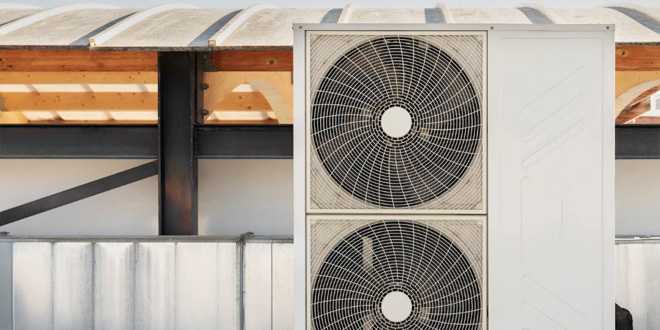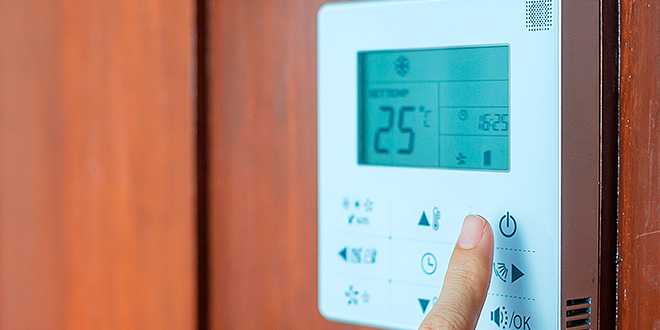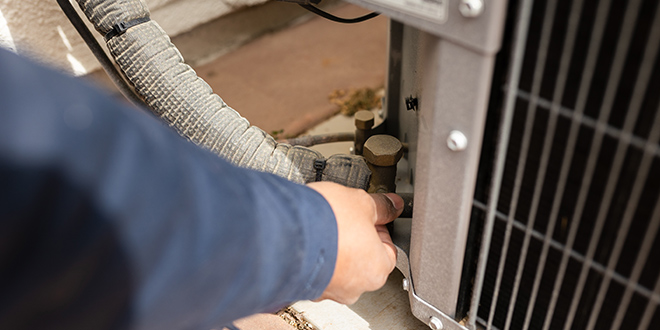Dreading that sky-high energy bill every summer or winter? You’re not alone. But have you ever wondered which culprit is draining your wallet more, the heater or the air conditioner? The answer might surprise you. In this post, we’ll dive into the world of home climate control and reveal which system uses more energy – and why. Buckle up, because the facts might just change the way you think about keeping your home comfortable!
🌟 Understanding Energy Consumption in HVAC Systems
The Basics of HVAC Energy Use
To start, it’s essential to grasp how heating, ventilation, and air conditioning (HVAC) systems consume energy. At its core, an HVAC system’s job is to transfer heat, whether it’s bringing warmth into your home during the cooler months or removing excess heat during the hotter seasons. The type of system you have (such as furnaces for heating or air conditioners for cooling), along with the energy source it utilizes (electricity, natural gas, etc.), plays a significant role in determining how much energy is consumed.
Types of Systems and Energy Sources
Heating systems can vary widely, from gas furnaces to electric heat pumps, each with different energy efficiency levels. Air conditioning units, similarly, range from traditional central systems to modern ductless mini-splits. Electric heat pumps serve dual functions, providing both heating and cooling, making them unique in their energy use profiles.
The Role of Efficiency Ratings
The energy efficiency of HVAC systems is often measured by specific ratings: Seasonal Energy Efficiency Ratio (SEER) for air conditioners and Annual Fuel Utilization Efficiency (AFUE) for furnaces. Higher ratings indicate more efficient energy use, translating to lower utility bills and reduced environmental impact.

🔍 Factors Affecting Energy Usage in Heating and Cooling
Climate and Seasonal Variations
The amount of energy your HVAC system uses is heavily influenced by your local climate and the seasonal temperatures you experience. In regions with extreme winters, heating systems are pushed to their limits, consuming a significant amount of energy. Conversely, in areas where summers are particularly hot and humid, air conditioning systems work overtime to keep indoor spaces cool, leading to increased energy usage.
Home Insulation and System Efficiency
The quality of insulation in your home can also play a crucial role in how much energy is required for heating and cooling. Well-insulated homes retain heat during the winter and keep cool air inside during the summer, reducing the workload on your HVAC system. Additionally, the age and efficiency of your system can impact energy consumption. Older, less efficient systems may require more energy to achieve the same level of comfort as newer, more efficient models.
Thermostat Settings and Usage Patterns
The way you use your HVAC system, including your preferred thermostat settings and how frequently you adjust them, can significantly affect your home’s energy consumption. Keeping your thermostat at a consistent temperature or using a programmable thermostat to adjust settings when you’re away or asleep can lead to substantial energy savings.

❄️ Heating vs. Air Conditioning: Which Consumes More Energy?
Analyzing Energy Consumption Trends
When it comes to determining whether heating or air conditioning uses more energy, several factors come into play, including the type of system, the fuel source, and the specific climate of the area. Generally, in colder climates where the winter is harsh and prolonged, heating systems tend to consume more energy. This is because maintaining a warm indoor temperature against the cold outside requires significant energy, especially if the heating system runs on electricity, which is less efficient than other fuel sources like natural gas.
Conversely, in regions with hot summers, air conditioning systems can be the larger energy consumer. The effort required to remove heat from the home and cool the indoor air can be substantial, particularly in areas where temperatures frequently exceed comfortable levels.
Specific Considerations for Our Service Areas
In the varied climates of Agua Dulce, Cal City, Lancaster, Llano, Palmdale, Rosemond, Santa Clarita, and Tehachapi, homeowners might find that their energy consumption shifts with the seasons. Our experience shows that during the peak of summer, air conditioning systems work overtime to combat the intense heat, leading to increased energy use. Meanwhile, in the winter months, while the chill can be less severe than in more northerly regions, heating still becomes a significant part of household energy consumption, especially in homes with less efficient heating systems or inadequate insulation.
Efficiency and Modern HVAC Solutions
Modern HVAC systems, particularly those with high SEER (for cooling) and AFUE (for heating) ratings, are designed to minimize energy consumption while maintaining comfort. Heat pumps, which can provide both cool and warm air, offer an energy-efficient alternative to traditional HVAC systems by transferring heat rather than generating it from a fuel source.
At All Heart Heating & Cooling, we specialize in providing energy-efficient heating and cooling solutions tailored to the unique needs of our customers. Whether you’re looking to replace an old, inefficient air conditioner or furnace, or you’re interested in exploring the benefits of a modern heat pump, we have the expertise and products to help you achieve optimal energy efficiency and comfort.
Key Takeaways
- The relative energy consumption of heating versus air conditioning is influenced by climate, system type, and efficiency.
- In our service areas, energy use patterns can vary significantly with the seasons.
- Upgrading to more efficient HVAC systems can significantly reduce energy consumption, regardless of whether you’re heating or cooling your home.
Understanding these factors can help homeowners make informed decisions about their HVAC systems and energy use, leading to more comfortable and cost-effective home environments.

💡 Energy Efficiency Tips for Heating and Cooling
Maximizing the energy efficiency of your heating and cooling systems not only contributes to a more comfortable home but also reduces your carbon footprint and saves on energy bills. Here are practical tips to enhance the efficiency of your HVAC systems throughout the year.
Regular Maintenance is Key
Consistent, professional maintenance is crucial for keeping your HVAC system running efficiently. Seasonal check-ups can prevent minor issues from becoming major problems and ensure your system operates at peak efficiency. This includes cleaning or replacing air filters regularly, which can significantly improve system performance and air quality.
Upgrade to Energy-Efficient Systems
Investing in high-efficiency HVAC systems can have a substantial impact on your energy consumption. Modern air conditioners, furnaces, and heat pumps are designed to use less energy while providing superior comfort. As an authorized Daikin dealer, we offer a range of energy-efficient options that fit both residential applications and your budget.
Smart Thermostats for Smarter Energy Use
Smart thermostats can significantly reduce energy usage by adjusting your home’s temperature based on your schedule and preferences. By learning your habits, these devices can minimize heating and cooling when you’re not home and ensure your living space is comfortable when you are. This can lead to considerable savings on your energy bills.
Seal and Insulate Your Home
Proper insulation and sealing can prevent heat loss in the winter and keep cool air inside during the summer. Attic venting, for example, can play a critical role in maintaining an efficient temperature balance throughout your home. We can help assess your home’s insulation needs and recommend solutions to enhance your HVAC system’s efficiency.
Consider Zone Control Systems
Zone control systems allow you to heat or cool only the areas of your home that are in use, reducing unnecessary energy expenditure. This not only improves comfort but also increases energy efficiency by not heating or cooling unoccupied spaces.
🚀 Innovative Solutions for Year-Round Comfort and Efficiency
In the quest for the perfect balance between comfort and energy efficiency, innovation plays a key role. The HVAC industry has seen significant advancements in technology that not only enhance comfort but also reduce energy consumption. Here are some of the innovative solutions that we at All Heart Heating & Cooling offer to ensure your home remains a haven of comfort and efficiency all year round.
Smart Thermostats: The Gateway to Energy Savings
Smart thermostats have revolutionized how we control the climate in our homes. These devices allow for precise temperature control, learn your preferences over time, and can be controlled remotely via smartphones or other devices. By adjusting temperatures based on your habits and preferences, smart thermostats reduce heat energy usage without sacrificing comfort.
High-Efficiency HVAC Systems: The Core of Modern Comfort
Today’s HVAC systems are more efficient than ever. With high SEER and AFUE ratings, these systems use less energy to heat and cool your home. As an authorized Daikin dealer, we provide access to the latest in HVAC technology, offering systems that not only meet but exceed current energy efficiency standards.
Zone Control Systems: Personalized Comfort in Every Room
Zone control systems allow for individual temperature settings in different areas of your home, ensuring that each room is set to your comfort level. This means you can keep your living room cozy while reducing heating or cooling in unused rooms, leading to significant energy savings.
Ductless Mini-Splits: Versatile and Efficient
For homes without traditional ductwork or for new additions, ductless mini-splits offer an efficient and customizable heating and cooling solution. These units can be installed in specific rooms or areas, providing targeted comfort without the energy loss associated with ducted systems.
Indoor Air Quality Solutions: Health and Efficiency Together
Enhancing your home’s air quality doesn’t just contribute to a healthier living environment; it can also improve the efficiency of your HVAC system. By integrating air purifiers, humidifiers, and dehumidifiers, we can help you achieve a balance of comfort, health, and efficiency.
Take the Next Step with All Heart Heating & Cooling 🌟
Ready to enhance your home’s comfort and efficiency? Contact us today! Our expert team is here to guide you through the latest in HVAC innovations, ensuring your space is perfectly tailored to your needs. Learn about energy saving agreement and superior comfort—let’s create a more sustainable and comfortable future together. 🏡💡




